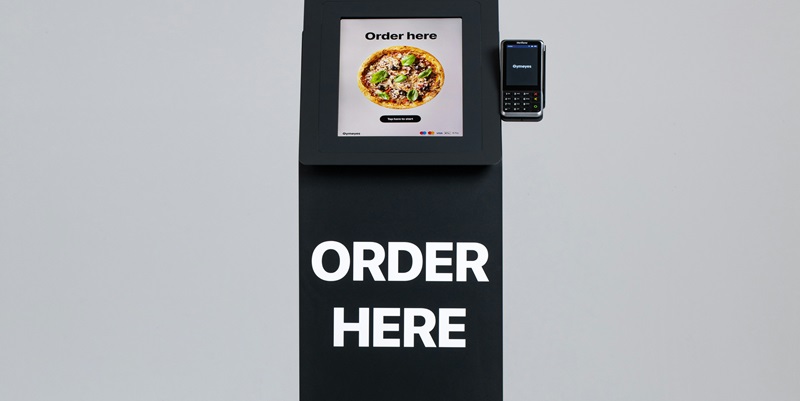The recent acquisition of Allset, a food-ordering platform, by SoundHound, a company renowned for voice recognition technology, marks a significant development at the intersection of voice recognition technology and the food service industry. This acquisition is not merely a merger of two companies but also signifies broader trends and ongoing experiments in leveraging AI to streamline and enhance customer service experiences in restaurants and drive-thrus.
Strategic Acquisition
SoundHound, known for its voice recognition and generative AI models, has acquired Allset, a platform that specializes in food ordering through cars, TVs, and smart devices. This acquisition includes the transfer of Allset’s staff and restaurant partnerships to SoundHound. Through this merger, SoundHound aims to integrate its advanced AI technologies with Allset’s expertise in the food service industry, creating more dynamic and convenient ways for consumers to order food via natural language processing.
Enhanced Capabilities
The merger brings together Allset’s deep understanding of the food service industry with SoundHound’s cutting-edge AI solutions. This combination is expected to significantly enhance the capabilities of both companies, aiming to provide consumers with seamless, voice-activated food ordering options that work across various devices. The integrated system promises to improve operational efficiencies for restaurants while making the ordering process more intuitive and enjoyable for customers.
Industry Trends
The acquisition is part of a broader industry trend where restaurants and fast-food chains are increasingly experimenting with AI to take customer orders and improve service efficiency. For example, brands like Wendy’s and McDonald’s have launched initiatives to incorporate AI voice recognition in their operations. These companies are seeking to leverage technology to enhance customer experience and operational efficiency, providing quicker and more accurate service. Despite the potential, these AI integrations come with their own set of challenges that need careful navigation.
Challenges and Setbacks
Despite the optimistic outlook and potential improvements, the integration of AI in food service is not without its challenges. McDonald’s, for instance, had to pause a project with IBM that focused on automating order-taking in drive-thrus due to various technical mishaps. These examples highlight that while AI offers numerous opportunities, it requires rigorous testing and continuous refinement to be successfully implemented in real-world environments. Companies need to address technological glitches and ensure customer adaptation to new systems.
Expanding Horizons
SoundHound’s previous collaborations include working with the fast-food chain White Castle and various automotive companies to integrate voice assistant technologies. The addition of Allset’s technology is expected to further broaden these capabilities, offering more seamless and integrated customer experiences. By incorporating Allset’s established platform, SoundHound aims to enhance its voice assistant offerings, making the food-ordering process more efficient and user-friendly.
AI Integration
There is a clear and growing trend towards integrating AI voice recognition in the food ordering process, driven by the need to enhance customer convenience and streamline operations. Numerous partnerships and acquisitions in the industry aim to consolidate expertise and technology to accelerate AI adoption. These collaborations seek to harness the strengths of various players to overcome the technological challenges faced by individual companies and provide more robust solutions.
Experimentation and Iteration
Many companies are in the experimental phase, testing AI in real-world environments and iterating based on feedback. McDonald’s and other companies’ experiences underscore the need for continuous refinement when implementing AI technologies. The ongoing advancements and experiments in AI voice recognition reflect significant potential for transforming the food service industry, paving the way for more efficient and user-friendly solutions in the future.
Summary of Main Findings
The acquisition of Allset by SoundHound strategically positions the two companies to leverage their combined expertise in AI and food service, aiming to revolutionize how consumers order food using voice technology. Merging Allset’s platform with SoundHound’s AI capabilities is expected to lead to more integrated and efficient food ordering systems, improving both the customer experience and operational efficiency for restaurants. Despite the optimistic outlook, integrating AI in customer-facing applications presents challenges, requiring companies to navigate technological glitches and customer adaptation carefully. Continued investment and development in this area are likely to yield more robust and user-friendly solutions.
Cohesive Narrative Reflecting Perspectives
The recent acquisition of Allset, a platform specializing in food ordering, by SoundHound, a company well-known for its voice recognition technology, marks a significant step forward in the fusion of voice recognition technology with the food service industry. This move goes beyond the mere joining of two companies; it underscores a broader trend and reflects ongoing experiments in employing artificial intelligence (AI) to streamline and enhance customer service experiences in restaurants and drive-thrus. With this acquisition, SoundHound aims to capitalize on the growing demand for innovative solutions that make dining experiences quicker and more efficient. For customers, this could mean shorter wait times and a more personalized dining experience, as AI and voice recognition technologies can anticipate preferences and expedite the ordering process. For restaurants, the integration of Allset’s platform with SoundHound’s advanced technology promises increased operational efficiency and better resource management. Ultimately, the acquisition highlights how AI is gradually becoming an integral part of customer service, hinting at a future where voice commands could revolutionize the way we dine.

